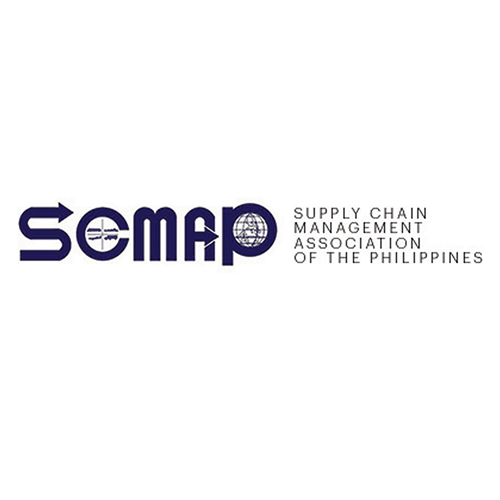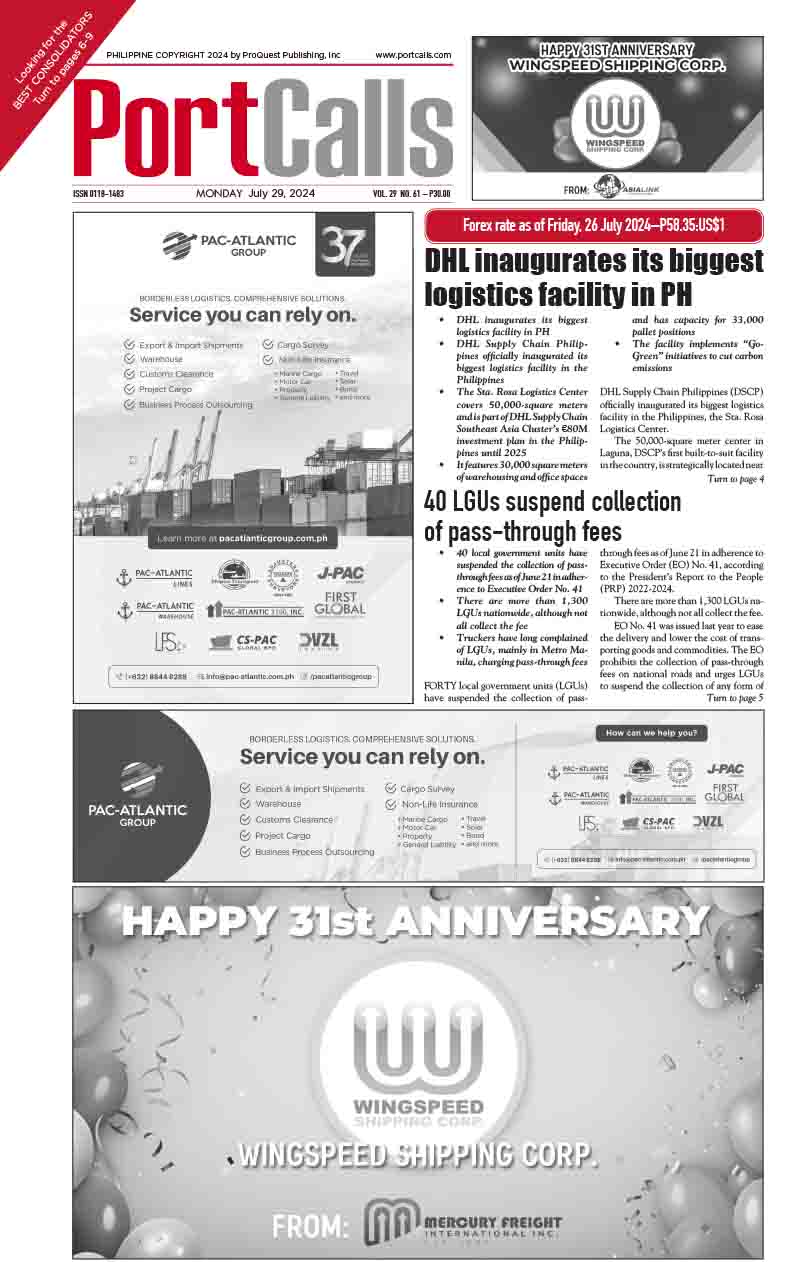Perhaps understandably, this column feels out of date. It’s only been a week since President Marcos delivered his third State of the Nation Address, and already we in greater Manila had to endure torrential raining and heavy flooding caused by typhoon Carina, and all the disruptions to our lives and the movement of goods that go with it.
But even without that, one may not remember much of what was said during the SONA. Understandable, again: this year’s address seems to be built around two major pronouncements, towards the end, about the West Philippine Sea and whether the controversial POGO system can continue. One has to pay attention to hear the president say something more directly connected to our work in the supply chain sector.
Whatever he did say was at the beginning, and cloaked around the just-as-pressing issue of food security. Understandable, yet again: by all indications the government’s efforts to improve our logistics competitiveness lies in its adoption of the Food Logistics Agenda. While its key points concern the distribution of food from major agricultural production centers to markets and households, it is widely believed that addressing these issues would also resolve other issues that impact non-food logistics. For example, improving connectivity from, say, Benguet to other parts of the country, preferably making it more resilient to typhoons and other natural calamities, would not just mean vegetables grown in the province would reach us in a fresher state. It could also mean access to more products at lower prices, perhaps leading to a better quality of life, for the residents of the “Salad Bowl of the Philippines”.
In particular, I was heartened – after initially being surprised, I must admit – when the president cited the perennial issue of pass-through fees in the SONA.
Pass-through fees have been a subject of complaint from industry stakeholders for as long as I can remember. This comes up in almost every consultation with relevant government agencies. How come local governments can charge our transport personnel fees just for driving through their jurisdictions in the service of delivering goods to other parts of the country?
It’s not that the government does not heed our calls for a response to this. The Department of Interior and Local Government, for example, regularly reiterates that local governments cannot charge these fees according to the provisions of the Local Government Code, as well as several memoranda released by the agency, most recently in 2018. Yet concerns persist, which has perhaps compelled the president himself to issue Executive Order 41 last September, prohibiting the collection of such fees for vehicles passing national roads – again citing the Local Government Code.
“To reduce unnecessary business costs, local government units no longer collect fees and charges from motorists transporting goods and merchandise while passing through national roads,” Marcos said early in last week’s SONA. “On the same principle, LGUs have been strongly urged to refrain from collecting similar fees for the use of local roads.”
In reality, of course, this EO has not fully prevented LGUs from finding new ways to impose fees on land transport. No more stickers in dashboards. Some members tell us that some LGUs require them to pay an annual fee to be allowed to pass through their jurisdictions. This makes it clear that while the EO has put forward the issue to the attention of the country’s top leadership, more should be done to strengthen enforcement of this regulation.
Perhaps a legislative solution? Can the Local Government Act be amended making it more explicit that no fees can be charged on delivery vehicles passing through national roads – roads that are not the responsibility of the LGU to begin with? Or maybe a different law altogether, which would strengthen the pronouncements of the Executive Order? The EO also “strongly [urges]” LGUs to not impose any pass-through fees on local roads, “in the interest of public welfare”. I imagine local governments can cite anything from road maintenance to traffic management as a rationale for charging fees that just increase prices for everyone, even way beyond their jurisdictions.
I also imagine local governments would scoff at the idea of losing a source of revenue. Can the national government put something to replace whatever may be earned from the banning of pass-through fees? The Mandanas ruling ideally gives LGUs a larger share of national revenues to spend on local concerns – like, well, road maintenance and traffic management – but absorptive capacity has always been an issue, especially for smaller governments who may not be able to make the most of the new resources.
What else could work? Maybe an appeal to the good nature of our local leaders? Pass-through fees go against the principle of “unhampered movement of goods” even if logistics personnel don’t resist paying them – as if they have a choice. Maybe we can tell them that eradicating these fees would contribute to economic growth, not just at a national level, but at a local level? Maybe if they see prices in their own high streets go down, they’ll understand.
Supply Chain Philippines Excellence Awards: This year SCMAP is launching our new awards honoring the most impactful work across Philippine supply chain, with an emphasis on adoption of innovative technologies and embracing sustainable practices. Winners will be honored at the 2024 SCMAP Supply Chain Conference happening in September. Learn more and get ready to nominate your project by visiting scmap.org/events/conference/awards.
Henrik Batallones is the marketing and communications director of SCMAP, and editor-in-chief of its official publication, Supply Chain Philippines. More information about SCMAP is available at scmap.org.
PREVIOUS COLUMN: Wanted: Filipino Supply Chain Talent?






